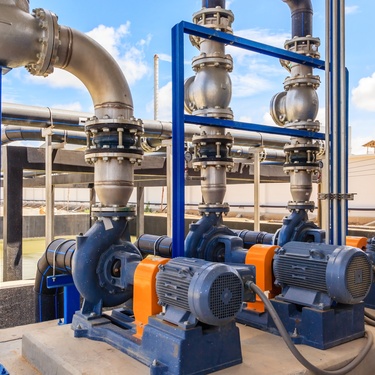
Expansion joints are flexible parts that connect sections of a piping system. They are designed to handle movement, absorb stress, and adapt to changing conditions that could damage a rigid system. Learn about the role of expansion joints in wastewater treatment plants and how they contribute to system longevity.
Reducing Vibrations and Noise
Machines like pumps and motors create vibrations that can put a lot of stress on pipes and connections. Expansion joints act like shock absorbers, lowering vibrations and protecting the system. They also reduce noise, which can improve the working environment for staff.
Lower vibrations and noise also mean less wear and tear on the equipment. By isolating the vibrations, expansion joints prevent frequent breakdowns, helping the plant operate more efficiently and reliably.
Absorbing Thermal Expansion and Contraction
Wastewater treatment plants often deal with temperature changes that make pipes expand and contract. Expansion joints absorb this movement, preventing pipes and equipment from cracking or breaking. This helps keep the system working well and avoids costly damage.
These joints are especially useful for systems that deal with hot liquids or steam, where temperature changes can be extreme. The Expansion Joint Manufacturers Association (EJMA) provides guidelines for the design, fabrication, and use of metal expansion joints. EJMA standards in expansion joint manufacturing ensure that these components work reliably and require minimal maintenance.
Protecting Against Structural Shifts
Expansion joints handle structural shifts that can happen in wastewater treatment plants due to settling soil, ground movement, or earthquakes. These shifts can cause pipes to misalign or crack, but expansion joints allow the system to move slightly without breaking.
This protection is important because even small misalignments can disrupt the flow of wastewater, leading to costly repairs and downtime. By using expansion joints, plants can maintain stable operations and prevent long-term damage to their infrastructure.
Expansion joints play a critical part in managing the challenges of vibrations, temperature changes, and structural shifts in wastewater treatment facilities. By using them, plants can avoid system damage, maintain steady operations, and extend the lifespan of their equipment. EJMA standards ensure these joints are built for performance and reliability. With their flexibility and durability, expansion joints are crucial for keeping treatment systems running at their best.
Bio: Casey is a passionate copyeditor highly motivated to provide compelling SEO content in the digital marketing space. Her expertise includes a vast range of industries from highly technical, consumer, and lifestyle-based, with an emphasis on attention to detail and readability.



















